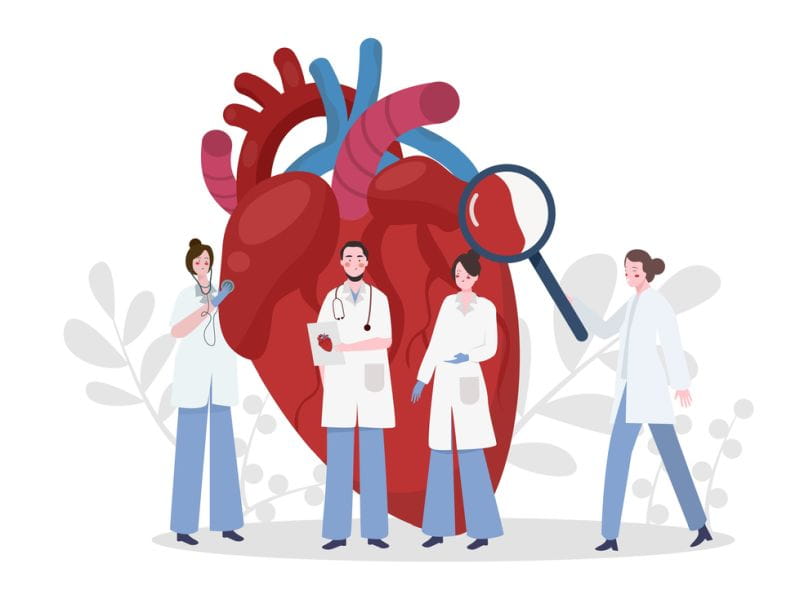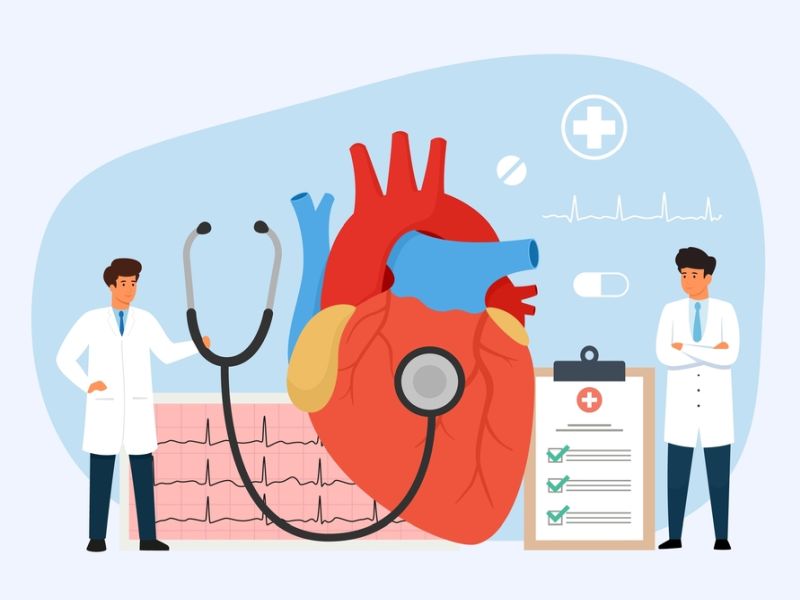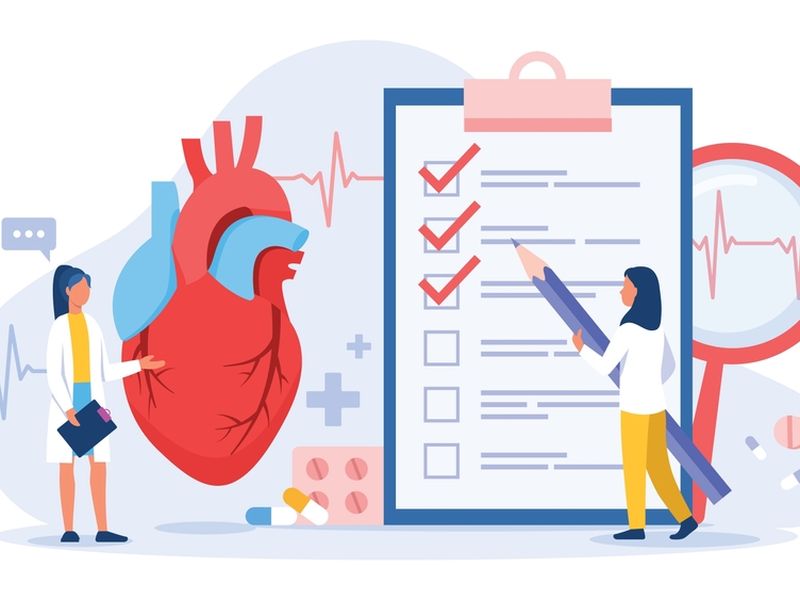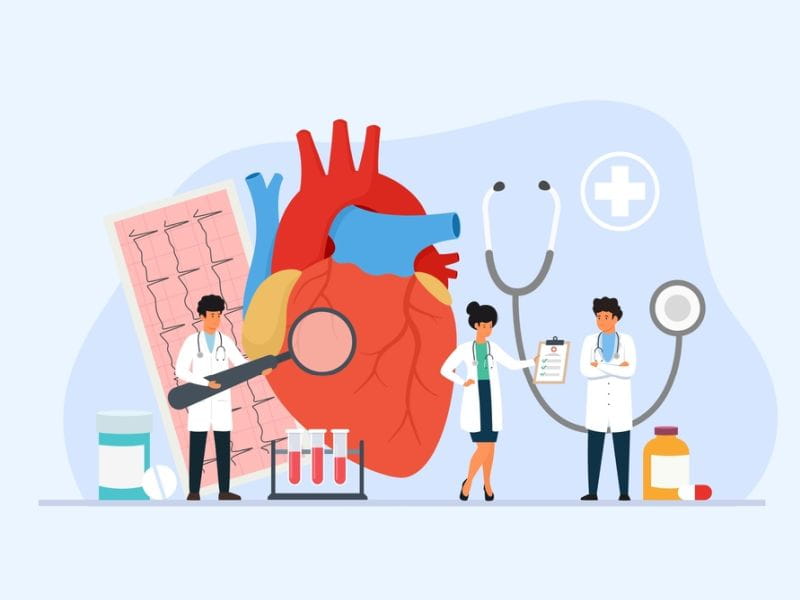This blog delves into the fascinating world of ESMR treatment cost in India. We will understand the factors contributing to the pricing, its benefits to patients, and the factors that make it a viable option for cardiac patients seeking relief from angina symptoms.
In recent years, the medical landscape has witnessed significant advancements, and one such groundbreaking innovation is Extracorporeal Shockwave Myocardial Revascularization (ESMR) treatment. ESMR, also known as Cardiac Shockwave Therapy, has emerged as a non-invasive and promising solution for patients suffering from chronic angina and heart conditions. This therapy has rapidly gained popularity due to its potential to alleviate pain, enhance cardiac function, and improve patients’ overall quality of life.
ESMR is a revolutionary medical procedure that employs low-energy shockwaves to stimulate the development of new blood vessels around the heart. This innovative therapy aims to enhance blood flow to the heart muscle, reducing the intensity and frequency of angina symptoms. Unlike traditional invasive treatments like angioplasty or bypass surgery, ESMR is non-surgical, non-invasive, and does not require any anaesthesia. This makes it a safer and more accessible option for patients who might not be suitable candidates for other procedures.
ESMR treatment in India offers a plethora of benefits that make it an attractive option for cardiac patients seeking a sustainable solution for angina. Firstly, as a non-invasive procedure, it eliminates the risks and complications associated with surgical interventions, thereby reducing downtime and recovery periods.
Moreover, ESMR has shown remarkable results in relieving angina symptoms, reducing the need for medication, and enhancing overall cardiac function. Patients have reported improved exercise tolerance and a significant reduction in chest pain, ultimately leading to an enhanced quality of life.
One of the key advantages of seeking ESMR treatment in India is its cost-effectiveness. India offers ESMR at a significantly lower cost compared to many developed countries, making it a more affordable option for patients from various socioeconomic backgrounds. The availability of state-of-the-art medical facilities and skilled healthcare professionals ensures that patients receive top-notch treatment at a fraction of the cost they might incur in other countries.
ESMR treatment has emerged as a promising and innovative approach to address chronic angina and heart conditions without requiring invasive procedures. As we explored the ESMR treatment cost in India, we witnessed how it provides an accessible and cost-effective solution for patients seeking long-term relief and improved cardiac function. However, before considering any medical treatment, patients should consult their healthcare professionals to determine if ESMR is the right choice for their specific condition.
Table of Contents
- ESMR Treatment Cost In India
- Factors Affecting The ESMR Treatment Cost In India
- About ESMR Treatment
- Benefits Of ESMR Treatment
- Duration Of ESMR Treatment
- What Are The Advantages Of ESMR Over Surgery?
- What Are The Potential Side Effects Of ESMR Treatment?
- How Long Does It Take To See The Results Of ESMR Treatment?
- Conclusion
ESMR Treatment Cost In India

The cost of ESMR treatment in India varies depending on the location and the hospital. The total cost of ESMR treatment would range from Rs. 85,000 to Rs. 1,00,000 in India. Some of the reputed centres that offer ESMR treatment in India are Neomed Hospital in Chennai, Hridayam Clinic in Pune, and Masina Heart Institute in Mumbai. These centres have experienced cardiologists and advanced equipment to provide ESMR treatment to patients.
Factors Affecting The ESMR Treatment Cost In India
The factors affecting the cost of ESMR treatment in India can vary based on several key elements:
1. Hospital/clinic reputation: The reputation and standing of the healthcare facility where the treatment is performed can significantly impact the cost. Renowned and well-established hospitals may charge higher fees than smaller or less-known clinics.
2. Location: The geographical location of the hospital or clinic can also influence the cost. Facilities in major cities or urban areas tend to have higher expenses, including staff salaries and operational costs, which could reflect the treatment cost.
3. Experience and expertise of the medical team: The skill and experience of the medical professionals administering the ESMR treatment can influence the cost. Highly trained and experienced doctors, cardiologists, and medical staff may charge more for their expertise.
4. Medical facilities and technology: The type of medical equipment, facilities, and technology used during the ESMR treatment can affect the overall cost. Advanced equipment and modern facilities may lead to higher treatment charges.
5. Complexity of the case: The complexity and severity of the cardiovascular condition being treated can impact the cost. More complicated cases may require additional procedures, monitoring, and post-treatment care, which could increase the overall expenses.
6. Pre-existing health conditions: Patients with pre-existing health conditions might require additional medical attention and monitoring during and after the treatment, which can add to the total cost.
7. Length of hospital stay: The duration of hospitalisation or observation after the ESMR treatment can influence the overall cost. Longer stays will result in higher expenses for accommodation, nursing care, and other services.
8. Inclusions and exclusions: The treatment cost might differ based on what services are included in the package. It’s essential to clarify with the healthcare provider what is covered and what may incur additional charges.
9. Government policies and insurance coverage: Healthcare regulations, government policies, and insurance coverage can also have an impact on the treatment cost. Some medical treatments may be partially or fully covered by insurance, while others may not be.
It is crucial to consult with healthcare providers and hospitals directly to obtain accurate and up-to-date information about the cost of ESMR treatment in India. Prices can vary widely, and it’s essential to consider the quality of care, expertise, and cost when making healthcare decisions.
About ESMR Treatment

ESMR stands for Extracorporeal Shockwave Myocardial Revascularization, a non-invasive cardiac treatment that stimulates the formation of new blood vessels in the heart tissue. ESMR can improve the blood supply to the heart muscles, reduce chest pain, and restore cardiac function. ESMR is also known as Non-invasive Cardiac Angiogenesis Therapy (Ni-CATh).
ESMR is a suitable option for patients with chronic chest pain (refractory angina) due to blockages in their coronary arteries that cannot be treated by conventional methods such as bypass surgery or angioplasty. ESMR is also beneficial for patients who have reblocked after bypass surgery or angioplasty, chronic renal disease with heart problems, high-risk cases medically unfit for bypass surgery, patients whose coronary anatomy is not amenable for bypass surgery, patients who cannot undergo angioplasty because the target lesion is inaccessible, patients who are not ready for surgery, elderly patients, and heart failure patients.
ESMR is a quick and safe treatment that involves applying shockwaves to the ischemic areas of the heart using an echocardiography-based device. The shockwaves induce angiogenesis, which is the growth of new blood vessels from existing ones. The new blood vessels increase the blood flow to the heart muscles and relieve the symptoms of ischemia. ESMR does not have any side effects and has a high success rate.
Here is an overview of the steps involved in the ESMR treatment process:
1. Patient Evaluation: Before undergoing ESMR treatment, a thorough evaluation is necessary to determine the patient’s suitability for the procedure. This evaluation may include medical history review, physical examination, diagnostic tests (such as electrocardiogram, stress tests, or coronary angiography), and assessment of angina symptoms.
2. Treatment Procedure: During the ESMR treatment, the patient lies comfortably on a treatment table. A device that generates shockwaves is positioned over the chest area, typically targeting the heart region with reduced blood flow due to narrowed or blocked coronary arteries. The shockwaves are then delivered to the targeted area through the chest wall.
3. Shockwave Delivery: Shockwaves are generated using electromagnetic or piezoelectric technology. They are focused on the specific area of the heart where the blood flow needs improvement. The shockwaves pass through the chest wall and are non-invasively directed to the heart tissue.
4. Angiogenesis Stimulation: The shockwaves stimulate the release of various growth factors and cytokines, promoting new blood vessel formation (angiogenesis). These newly formed vessels help improve blood supply to the oxygen-deprived areas of the heart muscle.
5. Post-Procedure Care: ESMR is typically an outpatient procedure; patients can often go home shortly after treatment. Recovery time is usually minimal, with most patients able to resume their daily activities soon after the procedure.
6. Follow-Up: After the treatment, patients will be monitored for improvements in their symptoms, exercise tolerance, and overall heart function. Sometimes, multiple treatment sessions may be offered to achieve the desired results.
It is essential to note that ESMR is not a replacement for conventional treatments such as medication, lifestyle changes, or interventional procedures like angioplasty or coronary artery bypass grafting (CABG). It is generally considered a complementary or adjunctive therapy for certain patients who are unsuitable candidates for more invasive procedures or have persistent angina despite optimal medical therapy.
As with any medical procedure, ESMR carries potential risks and benefits, and qualified healthcare professionals should determine its appropriateness for a particular patient based on individual circumstances and medical history. Since medical technology and treatments continuously evolve, it is advisable to consult the latest medical literature & consult with a healthcare provider to obtain the most up-to-date information on ESMR treatment.
Benefits Of ESMR Treatment

ESMR involves using shockwave therapy to stimulate blood vessel growth and improve blood flow to the heart muscle, particularly in chronic angina or refractory angina pectoris. Here are some of the potential benefits of ESMR treatment:
1. Non-invasive procedure: ESMR is a non-invasive treatment that does not require surgery or incisions. The shockwaves are delivered externally to the chest wall, eliminating the need for invasive procedures like angioplasty or coronary artery bypass surgery.
2. Reduction in angina symptoms: Chronic angina is characterised by recurring chest pain or discomfort due to reduced blood flow to the heart. ESMR aims to stimulate the formation of new blood vessels (angiogenesis) in the heart, improving blood supply to areas with reduced perfusion. Doing so can potentially reduce the frequency and intensity of angina episodes, leading to an improved quality of life for patients.
3. Enhanced exercise tolerance: As ESMR helps to improve blood flow to the heart muscle, patients may experience enhanced exercise tolerance and reduced limitations in physical activity. This can be particularly beneficial for individuals whose angina symptoms have limited their ability to engage in daily activities.
4. Potential alternative for patients ineligible for other procedures: Some patients with chronic angina may not be suitable candidates for traditional revascularisation procedures like angioplasty or coronary artery bypass grafting for various medical reasons. ESMR offers a potential alternative for these patients, allowing them to manage their symptoms and improve their heart function.
5. Minimal side effects and complications: ESMR is generally considered safe with minimal side effects & complications. The treatment is well-tolerated by most patients and does not require prolonged hospital stays or extensive post-operative care.
6. Short treatment duration: Each ESMR session typically lasts about 20 to 30 minutes, & patients may require multiple sessions based on their condition and response to treatment. The relatively short treatment duration makes it convenient for patients and reduces the burden on healthcare facilities.
It’s important to note that while ESMR shows promise, it is still considered a developing treatment option, and further research and clinical trials are important to establish its long-term effectiveness and safety. If you or someone you know is considering ESMR treatment, it is essential to consult with an experienced medical professional who can evaluate the individual’s specific medical condition and recommend the most appropriate treatment plan.
Duration Of ESMR Treatment
According to the latest clinical studies, ESMR treatment usually consists of nine sessions, each lasting about 40 minutes. The sessions are performed three times a week, with a gap of at least one day between sessions. The total duration of ESMR treatment is, therefore, about three weeks.
The number of sessions and the interval between them may vary depending on the patient’s condition and response to the treatment. Some patients may need more or fewer sessions or a longer or shorter interval between them. The doctor will decide the finest treatment plan for every patient depending on their medical history, symptoms, & test results.
What Are The Advantages Of ESMR Over Surgery?

SMR has some distinct advantages over surgery for treating chronic refractory angina. Here are some of them:
– ESMR is non-invasive and does not require any incisions or catheters. It can be conducted in an outpatient location under local anaesthesia, which restricts the risk of complications and recovery time.
– ESMR is safe and well-tolerated by most patients. The medical procedure takes about an hour and involves applying a gel pad to the chest and delivering shockwaves through a device synchronised with the heartbeat. The shockwaves are painless and do not damage the heart tissue. The most common side effects are mild and transient, such as skin irritation, bruising, or swelling at the treatment site.
– ESMR is effective and durable. Studies have shown that ESMR can significantly improve angina symptoms, quality of life, exercise capacity, and myocardial perfusion in patients with chronic refractory angina. The benefits can last up to two years or longer after the treatment.
– ESMR is suitable for a wide range of patients. ESMR can be used for patients who are not eligible for surgery or have failed to respond to other treatments, such as medications or enhanced external counterpulsation (EECP). ESMR can also be combined with other therapies, such as stem cell or gene therapy, to enhance its effects.
What Are The Potential Side Effects Of ESMR Treatment?
ESMR therapy is generally well tolerated and has no severe side effects. However, some minor and temporary side effects may occur, such as:
– Mild bruising or redness at the site of application
– Mild chest discomfort or palpitations during or after the session
– Headache or dizziness
– Nausea or vomiting
– Allergic reaction to the local anaesthesia
These side effects are usually mild and subside within a few hours or days. They do not affect the treatment outcome or require any special intervention.
How Long Does It Take To See The Results Of ESMR Treatment?

The results of ESMR therapy may vary depending on the individual patient’s condition and response. However, most patients report an improvement in their symptoms within a few weeks after starting the treatment. The progress may continue for several months after completing the treatment as new blood vessels grow and mature.
The effectiveness of ESMR therapy can be measured by various methods, such as:
– Angiography: This imaging test uses contrast dye and X-rays to visualise the blood vessels in the heart. It can show how many new blood vessels have formed and how much blood flow has increased after ESMR therapy.
– Stress test: This is a test that observes how well the heart works under stress, such as exercise or medication. It can show how much angina has reduced and how much exercise capacity has improved after ESMR therapy.
– Quality of life questionnaire: This is a survey that assesses how much ESMR therapy has affected the patient’s physical, mental, and emotional well-being.
According to some studies, ESMR therapy can improve angina by 80%, increase exercise capacity by 50%, reduce medication use by 40%, and enhance quality of life by 70%.
Conclusion
In conclusion, ESMR treatment in India presents a remarkable breakthrough in managing heart-related ailments. The procedure utilises shockwaves to stimulate blood vessel growth and improve blood flow to the heart, promoting natural healing & reducing the need for invasive surgeries. One of the significant advantages of choosing ESMR treatment in India is its affordability. Unlike other countries, where medical expenses can be exorbitant, India offers a cost-effective option for patients seeking quality healthcare without compromising results.
The cost of ESMR treatment in India is significantly lower due to various factors. The country’s renowned medical institutions boast state-of-the-art technology, allowing them to offer the latest treatment modalities at competitive prices. Additionally, India’s lower cost of living and competitive healthcare market help keep treatment expenses lower than in many Western countries.
Furthermore, ESMR treatment in India ensures accessibility to a broader patient population. This accessibility is a game-changer for those seeking advanced medical care without facing financial burdens. Patients can avail of world-class treatment in top-tier hospitals provided by experienced medical professionals without breaking the bank.
Moreover, India’s medical tourism industry has flourished in recent years, attracting patients from around the globe. This growing trend has led to the establishment of specialised medical travel agencies that facilitate the entire process, making it easier for international patients to access ESMR treatment in India. These agencies help with travel, accommodation, and hospital arrangements, ensuring a hassle-free experience for patients and their accompanying caregivers.
In summary, ESMR treatment in India is a beacon of hope for patients suffering from cardiovascular conditions. Its cost-effectiveness and accessibility, combined with top-notch medical facilities and skilled professionals, make it an ideal destination for medical tourists seeking quality cardiac care at a fraction of the price.
As medical technology continues to evolve, India’s commitment to staying at the top of healthcare innovation ensures that ESMR treatment remains accessible and affordable to patients from all walks of life. With its ever-growing reputation as a medical tourism hub, India is poised to play a significant role in transforming the landscape of cardiovascular treatments and offering hope and healing to patients worldwide.
The importance of ESMR treatment becomes apparent as medical professionals and researchers vouch for its efficacy in improving blood flow to the heart, reducing chest pain, and enhancing overall cardiac function. Despite its potential to transform lives, a significant portion of the Indian population remains unaware of this viable option. The crowdfunding platform aims to address this lack of awareness by serving as an information hub, disseminating success stories and medical evidence to educate the public about ESMR’s life-changing impact.
In collaboration with reputable medical facilities, the crowdfunding platform secures discounted treatment rates for patients using the funds raised. This strategic partnership ensures that each donation goes further in transforming lives and providing patients with access to high-quality cardiac care. The collective efforts of the compassionate community create a tangible impact, breaking down financial barriers and granting individuals the gift of accessible ESMR treatment. With every successful campaign, lives are saved, cardiac health is improved, and a brighter future unfolds for those who once faced uncertainty.












